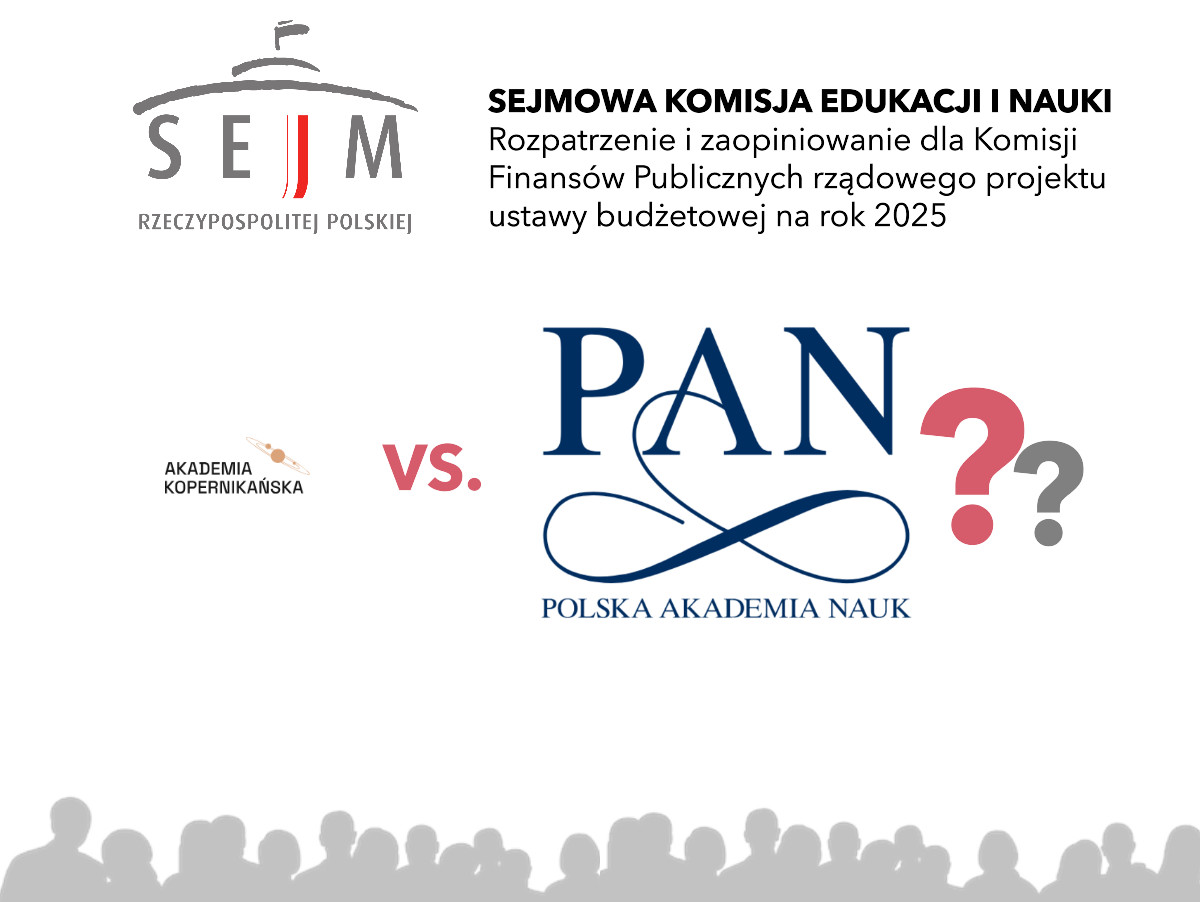The Minister of Science and Higher Education continues to spread lies about the Copernican Academy. Once again, false accusations were made that the Academy was managing financial resources from a grant amounting to 50 million PLN and government bonds worth 30 million PLN. We categorically deny these false claims.
At the most recent parliamentary committee meeting, Minister Dariusz Wieczorek said:
“A reward to anyone who can explain why 30 million PLN in bonds was transferred to the Copernican Academy in November 2023. Why was an additional grant of 20 million PLN provided in December?”
The truth about the funding of the Copernican Academy is entirely different, and Minister Wieczorek should be fully aware of this as someone responsible for managing science in Poland. The statutory budget grant for the Copernican Academy in its first year of operation (2023) was approximately 26 million PLN annually. These funds enabled the organization of the first Copernican Congress—a scientific congress that gathered several hundred guests, including many Nobel laureates. Only 5 million PLN of this amount was allocated for equipping the Nicolaus Copernicus Superior School (SGMK). In the second year (2024) of the Academy’s existence, the Minister of Science cut more than half of its annual budget, completely dismantling most targeted activities, including the newly launched grant program. Despite this, official channels continue to propagate lies claiming that the Academy manages financial resources to the tune of an exaggerated 50 million PLN. We appeal to the minister to stop spreading these lies. We ask for honest communication with the public about the actual financial resources that have been and are being allocated to the Copernican Academy. Please, let’s not talk about money that was never there!
Minister Dariusz Wieczorek apparently takes his political mandate to destroy the Copernican Academy and halt its activities very seriously. In addition to blatant falsehoods regarding the Academy’s funding, the minister has also argued that the Academy’s activities duplicate those of the Polish Academy of Sciences (PAN). Minister Wieczorek stated: “The Copernican Academy was created somewhat in opposition to PAN. (…) There is no reason for a country in the EU, such as Poland, to have two similar institutions with overlapping functions.”
The Academy was not created in opposition to PAN and was never intended to compete with the Polish Academy of Sciences, an institution with a much broader scope, a long-standing tradition, and unparalleled authority. The Copernican Academy’s budget is many times smaller than that of PAN, as the Copernican Academy operates exclusively in five Copernican fields. Eliminating the Copernican Academy will not save PAN’s budget, but it will deprive Polish science of the valuable contributions the Academy is already making and has the potential to develop in the future.
In a very short time, the Copernican Academy has created regulations for awarding Copernican Grants and Scholarships and has taken practical steps in this regard.
The Academy launched its first grant competition, attracting over twenty consortia, institutions, and research centers from around the world. Additionally, the First World Copernican Congress, the most important global event marking the 550th anniversary of Nicolaus Copernicus’ birth, took place. This event gathered several hundred foreign guests representing the most important scientific institutions in the world, including five Nobel laureates. It is hard to find similar initiatives in Poland dedicated to the advancement of Polish science. For the minister responsible for higher education to criticize these only highlights how poorly Minister Wieczorek understands his role and responsibilities.
